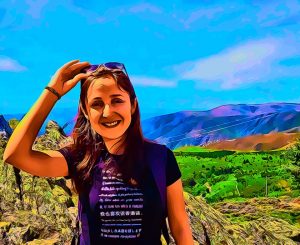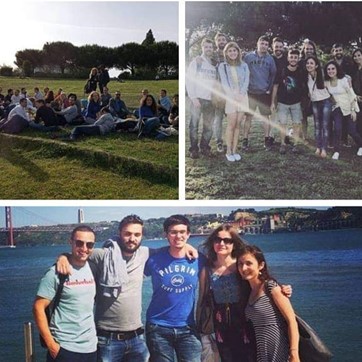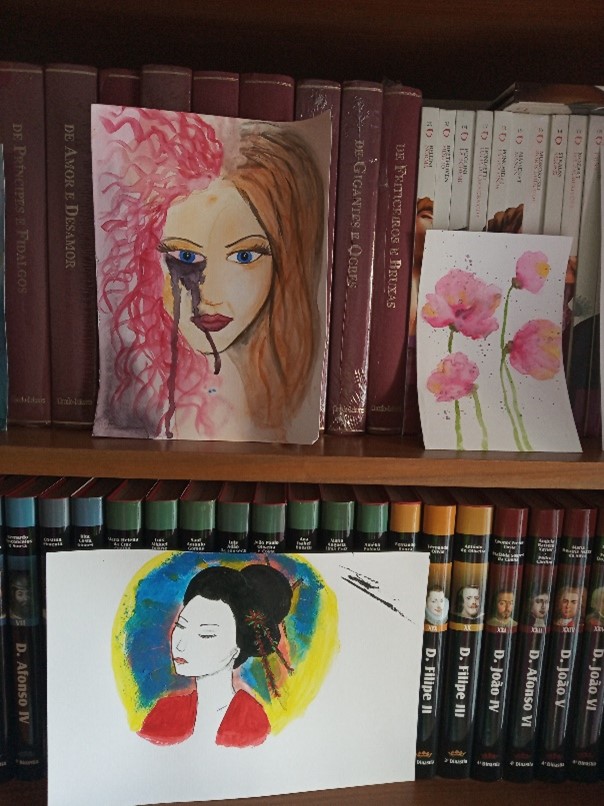126 Letter from Inês Carvalho

I am still an early career researcher. Although I do not have extended experience in the field, I am going to share with you my reflections on academic life up until now, with a focus on how I am managing my life as a researcher. Maybe you are very different from me, so some of this advice will not apply to you. Or maybe you identify with me, and this advice will be helpful for you:
- Collaboration is crucial in academia. Find someone who you enjoy working with and collaborate. This is positive in so many ways. Not only will your productivity increase, but you will also learn a lot. If you are collaborating with the right people, you will also develop meaningful connections and make friends, which will make academic (and non-academic) life more fulfilling.
- It is crucial not to collaborate with the wrong people – run away from lazy and irresponsible people – and avoid opportunists like the plague.
- Time management is essential – don’t waste it in pointless meetings, don’t waste time in unnecessary things. Plan. Plan ahead. Plan. Use your time wisely.
- At times, academic life can get really demanding. It is important to maintain balance:
- I try to work out every day in the morning. Usually, my morning workout consists of yoga. Sometimes I ride my bike on weekends. When I am more energetic, I cycle all the way to the university;
- I try to have a balanced and healthy diet (but I don’t obsess over it);
- Even if I am a poor sleeper, I try to respect my sleeping hours and rest as much as I can during those hours;
- I sometimes meditate. I think that this is an awesome practice that greatly contributes to mental balance. I love experiencing that deep sense of calm. I should have the discipline to meditate more often.
- I have family and friends who I love spending time with. I make sure that I have time for them.
- I save time for the things that I am passionate about.
- I have learned that sometimes it is important to say “No”. Unfortunately, time is a scarce resource. Accepting to do everything, and then feeling miserable because of your decision is not wise or healthy. More important than accepting all collaborations is to do things well when you do accept to collaborate with someone. This is what will give you a good reputation.
- Stress is a trigger of autoimmune diseases. You do not want those in your life.
For me personally, it is important to keep the passion alive. I want to live a life in a way that brings me joy. Although I am resilient to accomplish things even if I am not passionate for them, I really strive to have a life that I love. These are some of the steps I have taken towards…
- …a more fulfilling career:
- o Doing research on topics that I am passionate about. After more than ten years of doing research on gender, I felt the need to do research in other areas. One of my biggest passions is languages. Right now, I am doing research primarily at the intersection between languages and tourism together with other researchers. Here is a video where I present one of these papers in 10 languages: https://www.youtube.com/watch?v=geW478sedkU&t=194s
- o Not being afraid of doing research in areas that I am interested in, regardless of whether these are popular or not at the moment. Being one of the first people to write in a certain area is more likely to make you popular as a researcher when that area eventually ignites. Granted, it is also a risk because the area might never ignite. Regardless of that, I want to be “alive” while I am doing research, instead of feeling that I am just assembling paragraphs and ideas.
- …a more fulfilling life overall:
- There are many things in life that I am passionate about, and I make sure that I also dedicate some time to them. I cultivate creative and enriching hobbies whenever I can:
- I love languages. I speak several languages fluently and others not so fluently. My aim is to be able to become at least conversational in 11 languages. I am not far from this goal. でも日本語は簡単じゃないです。

- I love languages. I speak several languages fluently and others not so fluently. My aim is to be able to become at least conversational in 11 languages. I am not far from this goal. でも日本語は簡単じゃないです。
- There are many things in life that I am passionate about, and I make sure that I also dedicate some time to them. I cultivate creative and enriching hobbies whenever I can:
-
-
- I regularly organize language exchange events that bring together migrants and locals. I get to improve my language skills while meeting new people and making new friends. I always feel so happy afterwards. That kind of happiness that I felt when I was a child returning home after a whole afternoon of playing outdoors with my neighbors.
-

-
-
- I love painting and colors. I am not particularly talented, but it feels so good to paint.
-

Up until now, I have not felt that being a woman has held me back careerwise. I should add that I have not yet become a mother. I am sure that my ambitions have led me to postpone decisions concerning motherhood. I am also sure that having family responsibilities will change my ideas on some of the things I have written above. But right now, this is my take on academic life. My career is a huge part of my life, but there is certainly life beyond my career – and I also want to live it.
All the luck for your career and your life!
Best wishes,
![]()
Inês Carvalho
Universidade Europeia, Portugal

